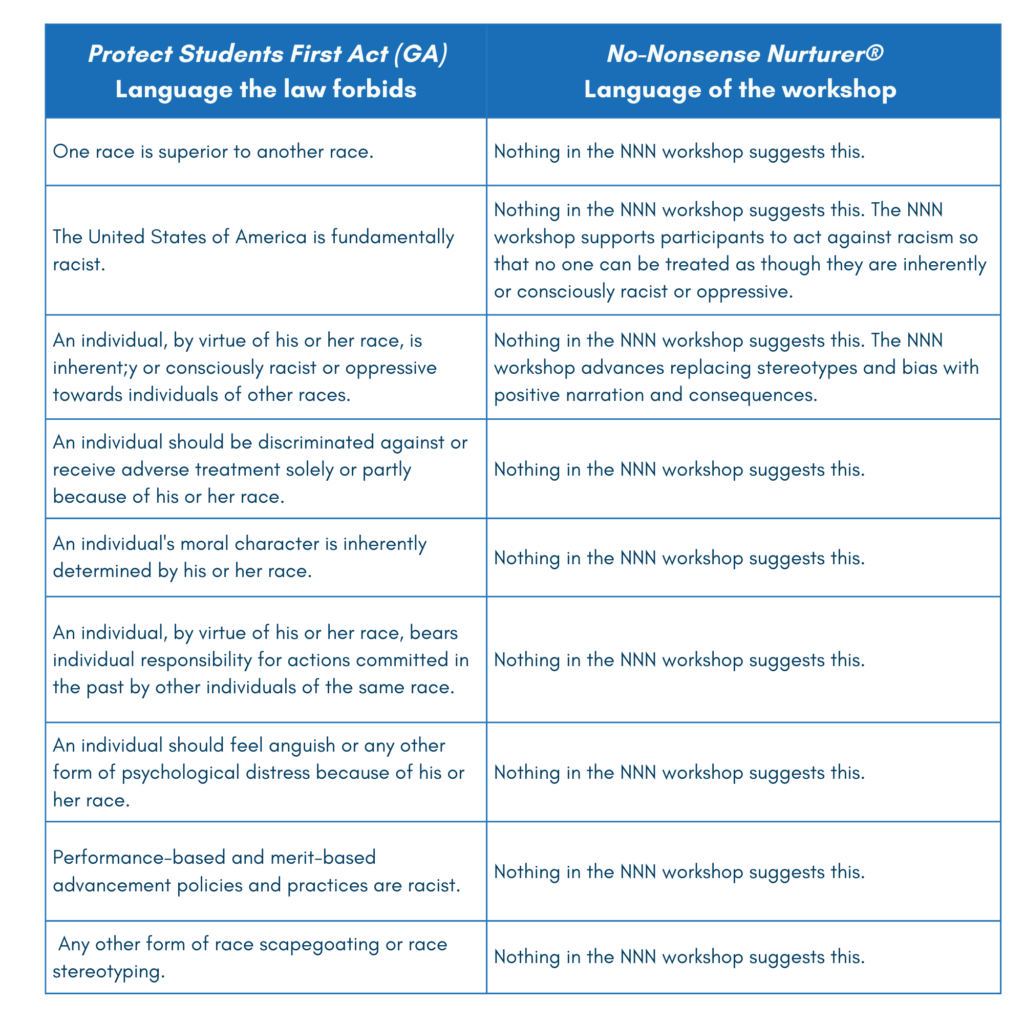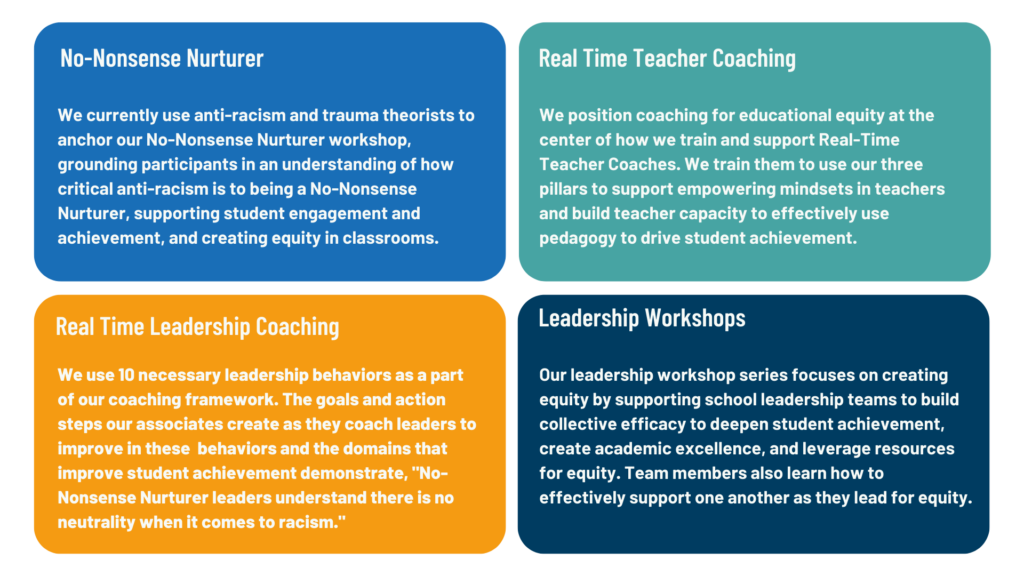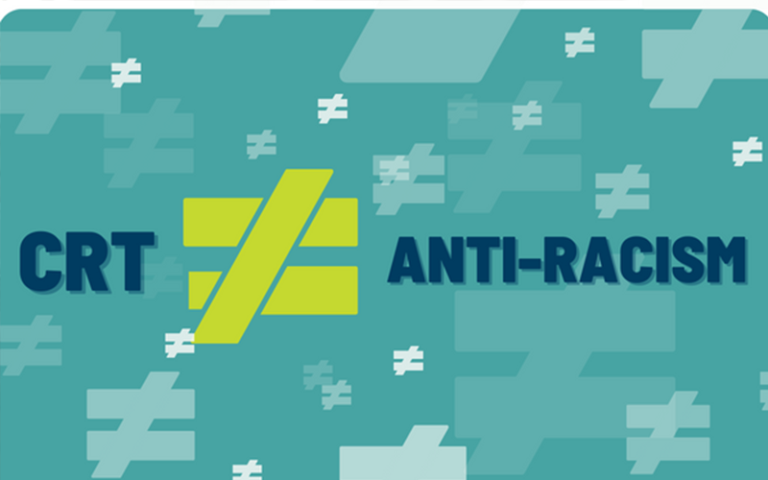All over the nation, schools have started the 22-23 school year as the closest we’ve come to our pre-pandemic reality (despite COVID infection rates at steady state and a looming monkeypox threat). Masks are generally optional; most of the nation’s districts are opening with in person instruction; parents are reporting a sense of familiarity with this year’s school structure, and; teachers are reporting fewer feelings of whiplash. One space where teachers in some states are reporting confusion is how to make sense of new directives related to critical race theory in their instruction (Waxman, 2022).
 At CT3, we believe all students are capable of engaging with challenging curriculum and can meet or exceed rigorous expectations. We also believe that students thrive in classrooms where they feel safe, valued, cared for, and have a sense of membership and investment. Supporting the creation of classrooms where students feel and have these things requires the disruption of racism’s legacy, regardless of the racial identities represented in the student body. Though racism has been historically central to the development of this country, it no longer deserves to be. Our children deserve to grow up in a world where it no longer exists.
That stance — questioning oppression based on race; deconstructing behaviors that support that oppression; and building equitable replacements — is integrated into all our bodies of work. Figure 1 shows this integration, which ensures that our principal focus is on meeting the needs of every student. We collaborate with educators to provide strategies and pedagogical practices that meet the needs of Every Student, Every Day (Borrero, 2018). Table 1 shows how the language of anti-CRT laws does not reflect what we do in our foundational work, our No-Nonsense Nurturer® workshop. Since nothing in our foundational work is violating this particular anti-CRT law, what might cause concern?
At CT3, we believe all students are capable of engaging with challenging curriculum and can meet or exceed rigorous expectations. We also believe that students thrive in classrooms where they feel safe, valued, cared for, and have a sense of membership and investment. Supporting the creation of classrooms where students feel and have these things requires the disruption of racism’s legacy, regardless of the racial identities represented in the student body. Though racism has been historically central to the development of this country, it no longer deserves to be. Our children deserve to grow up in a world where it no longer exists.
That stance — questioning oppression based on race; deconstructing behaviors that support that oppression; and building equitable replacements — is integrated into all our bodies of work. Figure 1 shows this integration, which ensures that our principal focus is on meeting the needs of every student. We collaborate with educators to provide strategies and pedagogical practices that meet the needs of Every Student, Every Day (Borrero, 2018). Table 1 shows how the language of anti-CRT laws does not reflect what we do in our foundational work, our No-Nonsense Nurturer® workshop. Since nothing in our foundational work is violating this particular anti-CRT law, what might cause concern?
 We use the term anti-racist to define our stance and that term may create feelings of discomfort for some; addressing issues related to race often does. The term may also raise questions for some, “What does racism have to do with student engagement?” Or, “How does anti-racism support numerous ethnicities?” Paying close attention to ensuring every student’s learning needs are effectively addressed happens more effectively when discrimination or biases are absent, particularly when based on race. Similarly, systems, policies, and behaviors that oppress specific ethnicities limits the opportunity for ALL members of society to contribute. In short, racism hurts us all. That’s why we are acting against racism, and want to see it removed from our schools, our communities, our futures. Who doesn’t want that?
As indicated in the bill’s language in Table 1, we don’t think any race is superior to another race, or that anyone should be discriminated against or receive adverse treatment because of their race. We also don’t believe anyone should feel anguish, guilt, or any form of psychological distress by virtue of their race. Racism hurts us all.
At CT3, we stand shoulder-to-shoulder with every other person on the planet who takes this stance, and believes racism has no place in our schools, our communities, or our future. Our stance against racism is firm; no one should have to live with it and we want to ensure that America’s children are prepared to actively act against it, too. Our hope is that one day, they will create the anti-racist America that will finally fulfill the promise of the Constitution: that all are created equal.
by Nataki Gregory, CEO
References
We use the term anti-racist to define our stance and that term may create feelings of discomfort for some; addressing issues related to race often does. The term may also raise questions for some, “What does racism have to do with student engagement?” Or, “How does anti-racism support numerous ethnicities?” Paying close attention to ensuring every student’s learning needs are effectively addressed happens more effectively when discrimination or biases are absent, particularly when based on race. Similarly, systems, policies, and behaviors that oppress specific ethnicities limits the opportunity for ALL members of society to contribute. In short, racism hurts us all. That’s why we are acting against racism, and want to see it removed from our schools, our communities, our futures. Who doesn’t want that?
As indicated in the bill’s language in Table 1, we don’t think any race is superior to another race, or that anyone should be discriminated against or receive adverse treatment because of their race. We also don’t believe anyone should feel anguish, guilt, or any form of psychological distress by virtue of their race. Racism hurts us all.
At CT3, we stand shoulder-to-shoulder with every other person on the planet who takes this stance, and believes racism has no place in our schools, our communities, or our future. Our stance against racism is firm; no one should have to live with it and we want to ensure that America’s children are prepared to actively act against it, too. Our hope is that one day, they will create the anti-racist America that will finally fulfill the promise of the Constitution: that all are created equal.
by Nataki Gregory, CEO
References
What is CRT?
Critical race theory (CRT) is a decades-old academic framework that scholars use to interrogate how legal systems, as well as other elements of society, perpetuate racism and exclusion (Sawchuk, 2021). Many of the things dumped under the CRT umbrella (sometimes anything related to race, gender, sex, ethnicity, LBGTQ identity, etc.) don’t fit with its definition, but applying the label seems to make it easier for people to come out against it and put more things under a CRT umbrella. At least 19 states have so-called “anti-critical race theory” laws or regulations—despite the fact that CRT is rarely taught below the graduate university level. Even more school boards enacted policies or changed curricula in an effort to restrict how teachers talk to their students about race and diversity. Even a CT3 offering, the No-Nonsense Nurturer® workshop, has been included under this CRT umbrella, which is incorrect and misleading. A review of these laws finds detailed language related to “divisive concepts,” that, if taught, would be in violation of the law. There are examples across the nation, and they nearly all include a version of the language in Table 1, which is taken from the Georgia law and defines what is meant by “divisive concepts.” This table also shows how the language of anti-CRT laws does not reflect what we do in our foundational work, our No-Nonsense Nurturer® workshop.Table 1. How our No-Nonsense Nurturer workshop lines up with “divisive concepts” language found in most anti-CRT laws.
 At CT3, we believe all students are capable of engaging with challenging curriculum and can meet or exceed rigorous expectations. We also believe that students thrive in classrooms where they feel safe, valued, cared for, and have a sense of membership and investment. Supporting the creation of classrooms where students feel and have these things requires the disruption of racism’s legacy, regardless of the racial identities represented in the student body. Though racism has been historically central to the development of this country, it no longer deserves to be. Our children deserve to grow up in a world where it no longer exists.
That stance — questioning oppression based on race; deconstructing behaviors that support that oppression; and building equitable replacements — is integrated into all our bodies of work. Figure 1 shows this integration, which ensures that our principal focus is on meeting the needs of every student. We collaborate with educators to provide strategies and pedagogical practices that meet the needs of Every Student, Every Day (Borrero, 2018). Table 1 shows how the language of anti-CRT laws does not reflect what we do in our foundational work, our No-Nonsense Nurturer® workshop. Since nothing in our foundational work is violating this particular anti-CRT law, what might cause concern?
At CT3, we believe all students are capable of engaging with challenging curriculum and can meet or exceed rigorous expectations. We also believe that students thrive in classrooms where they feel safe, valued, cared for, and have a sense of membership and investment. Supporting the creation of classrooms where students feel and have these things requires the disruption of racism’s legacy, regardless of the racial identities represented in the student body. Though racism has been historically central to the development of this country, it no longer deserves to be. Our children deserve to grow up in a world where it no longer exists.
That stance — questioning oppression based on race; deconstructing behaviors that support that oppression; and building equitable replacements — is integrated into all our bodies of work. Figure 1 shows this integration, which ensures that our principal focus is on meeting the needs of every student. We collaborate with educators to provide strategies and pedagogical practices that meet the needs of Every Student, Every Day (Borrero, 2018). Table 1 shows how the language of anti-CRT laws does not reflect what we do in our foundational work, our No-Nonsense Nurturer® workshop. Since nothing in our foundational work is violating this particular anti-CRT law, what might cause concern?
Figure 1. How anti-racism is integrated into CT3’s bodies of work
 We use the term anti-racist to define our stance and that term may create feelings of discomfort for some; addressing issues related to race often does. The term may also raise questions for some, “What does racism have to do with student engagement?” Or, “How does anti-racism support numerous ethnicities?” Paying close attention to ensuring every student’s learning needs are effectively addressed happens more effectively when discrimination or biases are absent, particularly when based on race. Similarly, systems, policies, and behaviors that oppress specific ethnicities limits the opportunity for ALL members of society to contribute. In short, racism hurts us all. That’s why we are acting against racism, and want to see it removed from our schools, our communities, our futures. Who doesn’t want that?
As indicated in the bill’s language in Table 1, we don’t think any race is superior to another race, or that anyone should be discriminated against or receive adverse treatment because of their race. We also don’t believe anyone should feel anguish, guilt, or any form of psychological distress by virtue of their race. Racism hurts us all.
At CT3, we stand shoulder-to-shoulder with every other person on the planet who takes this stance, and believes racism has no place in our schools, our communities, or our future. Our stance against racism is firm; no one should have to live with it and we want to ensure that America’s children are prepared to actively act against it, too. Our hope is that one day, they will create the anti-racist America that will finally fulfill the promise of the Constitution: that all are created equal.
by Nataki Gregory, CEO
References
We use the term anti-racist to define our stance and that term may create feelings of discomfort for some; addressing issues related to race often does. The term may also raise questions for some, “What does racism have to do with student engagement?” Or, “How does anti-racism support numerous ethnicities?” Paying close attention to ensuring every student’s learning needs are effectively addressed happens more effectively when discrimination or biases are absent, particularly when based on race. Similarly, systems, policies, and behaviors that oppress specific ethnicities limits the opportunity for ALL members of society to contribute. In short, racism hurts us all. That’s why we are acting against racism, and want to see it removed from our schools, our communities, our futures. Who doesn’t want that?
As indicated in the bill’s language in Table 1, we don’t think any race is superior to another race, or that anyone should be discriminated against or receive adverse treatment because of their race. We also don’t believe anyone should feel anguish, guilt, or any form of psychological distress by virtue of their race. Racism hurts us all.
At CT3, we stand shoulder-to-shoulder with every other person on the planet who takes this stance, and believes racism has no place in our schools, our communities, or our future. Our stance against racism is firm; no one should have to live with it and we want to ensure that America’s children are prepared to actively act against it, too. Our hope is that one day, they will create the anti-racist America that will finally fulfill the promise of the Constitution: that all are created equal.
by Nataki Gregory, CEO
References
- Borrero, K. K. (2019). Every student, every day: A no-nonsense nurturer approach to reaching all learners. Solution Tree Press.
- Greene, P. (2022, February 16). Teacher Anti-Crt Bills Coast To Coast: A State By State Guide. Forbes. Retrieved August 24, 2022, from https://www.forbes.com/sites/petergreene/2022/02/16/teacher-anti-crt-bills-coast-to-coast-a-state-by-state-guide/?sh=7f94f8c24ff6.
- Sawchuk, S. (2021, May 18). What Is Critical Race Theory, and Why Is It Under Attack? Edweek.org. Retrieved August 29, 2022, from https://www.edweek.org/leadership/what-is-critical-race-theory-and-why-is-it-under-attack/2021/05.
- Waxman, O. (2022, June 30). Anti-‘Critical Race Theory’ Laws Are Working. Teachers Are Thinking Twice About How They Talk About Race. Time. Retrieved August 27, 2022, from https://time.com/6192708/critical-race-theory-teachers-racism/.


